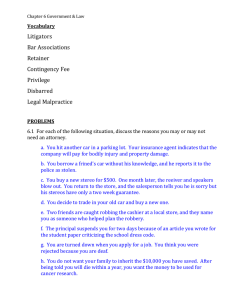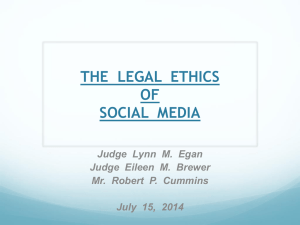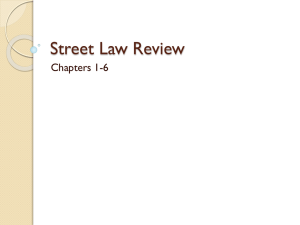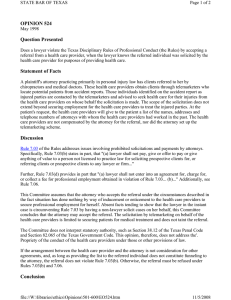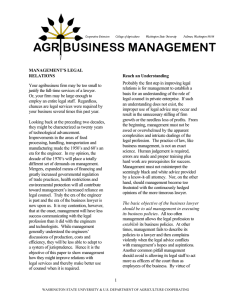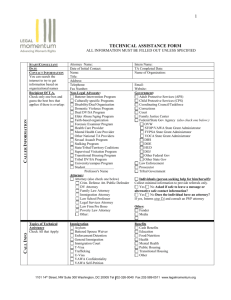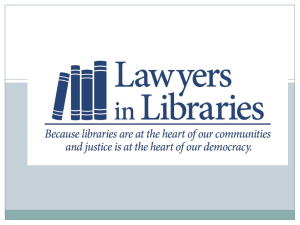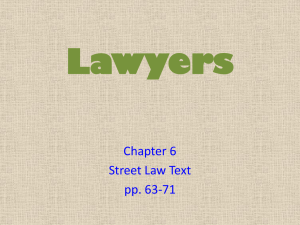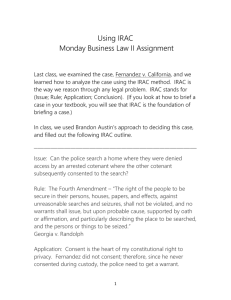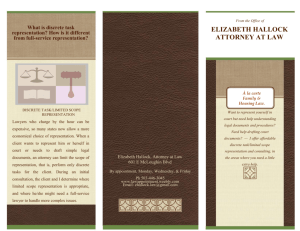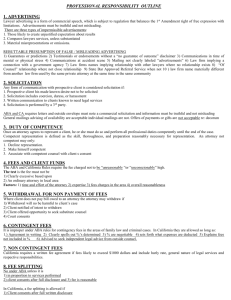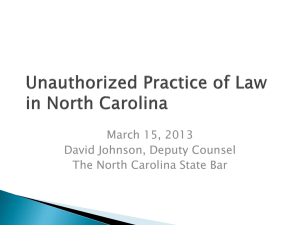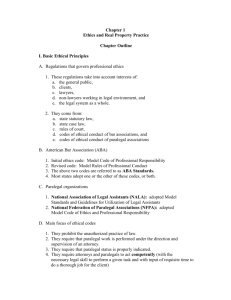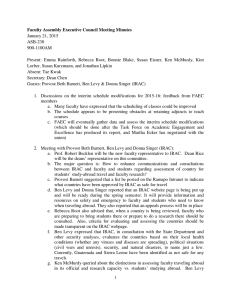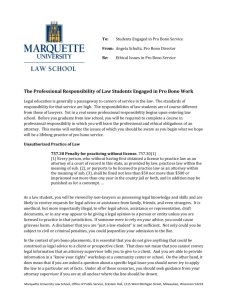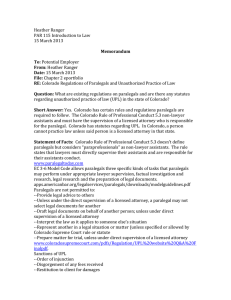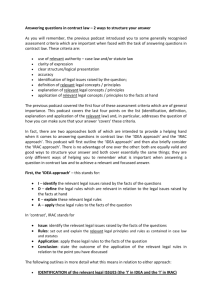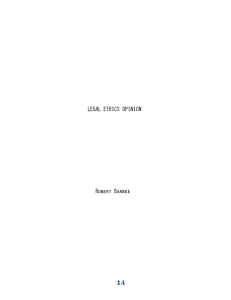File
advertisement
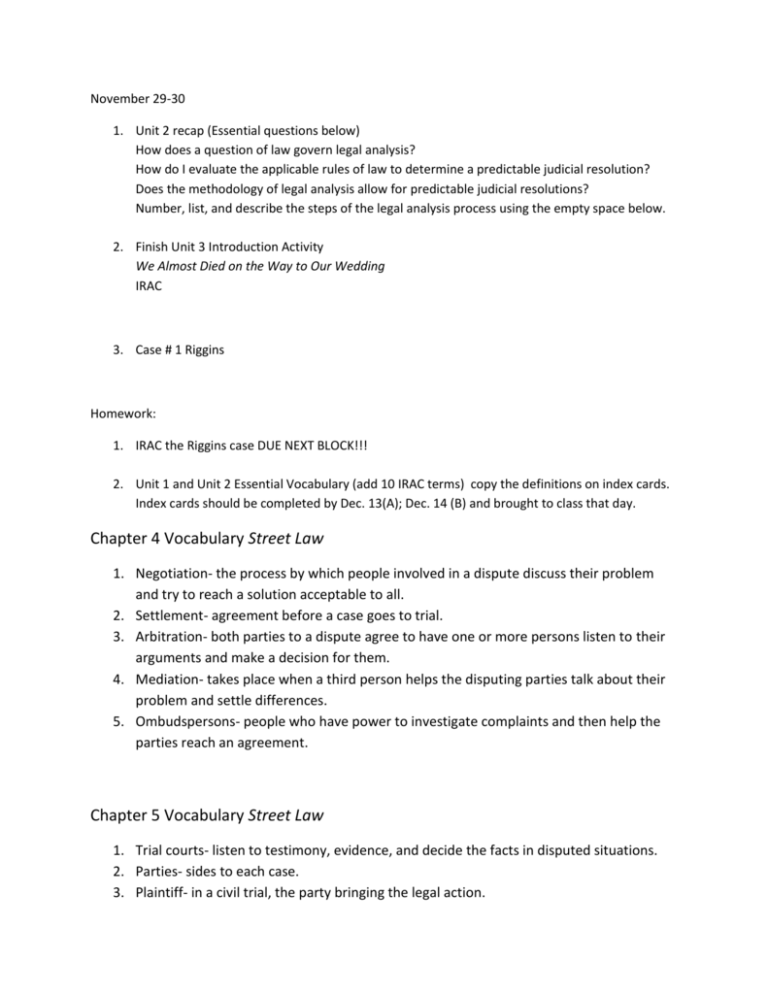
November 29-30 1. Unit 2 recap (Essential questions below) How does a question of law govern legal analysis? How do I evaluate the applicable rules of law to determine a predictable judicial resolution? Does the methodology of legal analysis allow for predictable judicial resolutions? Number, list, and describe the steps of the legal analysis process using the empty space below. 2. Finish Unit 3 Introduction Activity We Almost Died on the Way to Our Wedding IRAC 3. Case # 1 Riggins Homework: 1. IRAC the Riggins case DUE NEXT BLOCK!!! 2. Unit 1 and Unit 2 Essential Vocabulary (add 10 IRAC terms) copy the definitions on index cards. Index cards should be completed by Dec. 13(A); Dec. 14 (B) and brought to class that day. Chapter 4 Vocabulary Street Law 1. Negotiation- the process by which people involved in a dispute discuss their problem and try to reach a solution acceptable to all. 2. Settlement- agreement before a case goes to trial. 3. Arbitration- both parties to a dispute agree to have one or more persons listen to their arguments and make a decision for them. 4. Mediation- takes place when a third person helps the disputing parties talk about their problem and settle differences. 5. Ombudspersons- people who have power to investigate complaints and then help the parties reach an agreement. Chapter 5 Vocabulary Street Law 1. Trial courts- listen to testimony, evidence, and decide the facts in disputed situations. 2. Parties- sides to each case. 3. Plaintiff- in a civil trial, the party bringing the legal action. 4. Prosecutor- in a criminal trial, the state or federal government initiates the case. 5. Defendant- in both criminal and civil trials, the party responding to the plaintiff (civil) or prosecution (criminal). 6. Adversarial system- it is a contest between opposing sides, or adversaries. 7. Inquisitional system- the judge is active in questioning witnesses and controlling the court process, including gathering and presenting evidence. 8. Plea bargain- pretrial agreement between the prosecutor and the defendant and his or her lawyer. This agreement disposes of the case without a trial. 9. Voir dire- a process by which jurors are screened and then assigned to specific cases. 10. Removal for cause- removal or any juror who appears incapable of rendering a fair and impartial verdict. 11. Preemptory challenges- attorneys can have prospective jurors removed without stating a cause. 12. Appeals court- one party presents arguments asking the court to review the decision of the trial court. 13. Error of law- when the judge makes a mistake as to the law applicable in the case. 14. Precedent- a court decision on a legal question that guides future cases with similar questions. 15. Dissenting opinion- Separate document issued by a judge who disagrees with the majority opinion; this document states the reasons for the disagreement 16. Concurring opinion- Separate document issued by judges who agree with the majority’s outcome, but for different reasons. 17. Probate courts- courts that handle cases involving wills and claims against the estates of persons who die with or without a will. 18. Inherent powers- include powers to regulate family relationships, tribal membership, and law and order among tribal members on reservation. 19. Delegated powers- when Congress grants power, such as environmental regulation, to a tribal group in a certain area 20. Petitions for certiorari- a formal application by a party to have a lower court decision reviewed by the U.S. Supreme Court, which has the discretion to approve or deny any such application. 21. Stare Decisis- a doctrine stating that the precedent must be followed which provides the legal system with predictability and stability. Chapter 6 Vocabulary Street Law 1. Litigators- trial attorney 2. Bar associations- organizations that license lawyers. 3. Retainer- a down payment on the total fee. 4. Contingency fee- the fee paid to an attorney based on a percentage of the sum the client is awarded or settles for in a lawsuit 5. Privilege- whatever you tell your attorney about the case is private and confidential. 6. Disbarred- to take away an attorney’s license to practice law because of illegal or unethical conduct. 7. Legal malpractice- the type of lawsuit brought against a lawyer for loss or injury to his or her client caused by the lawyer’s error or failure to meet acceptable standards of practice for the legal profession.
